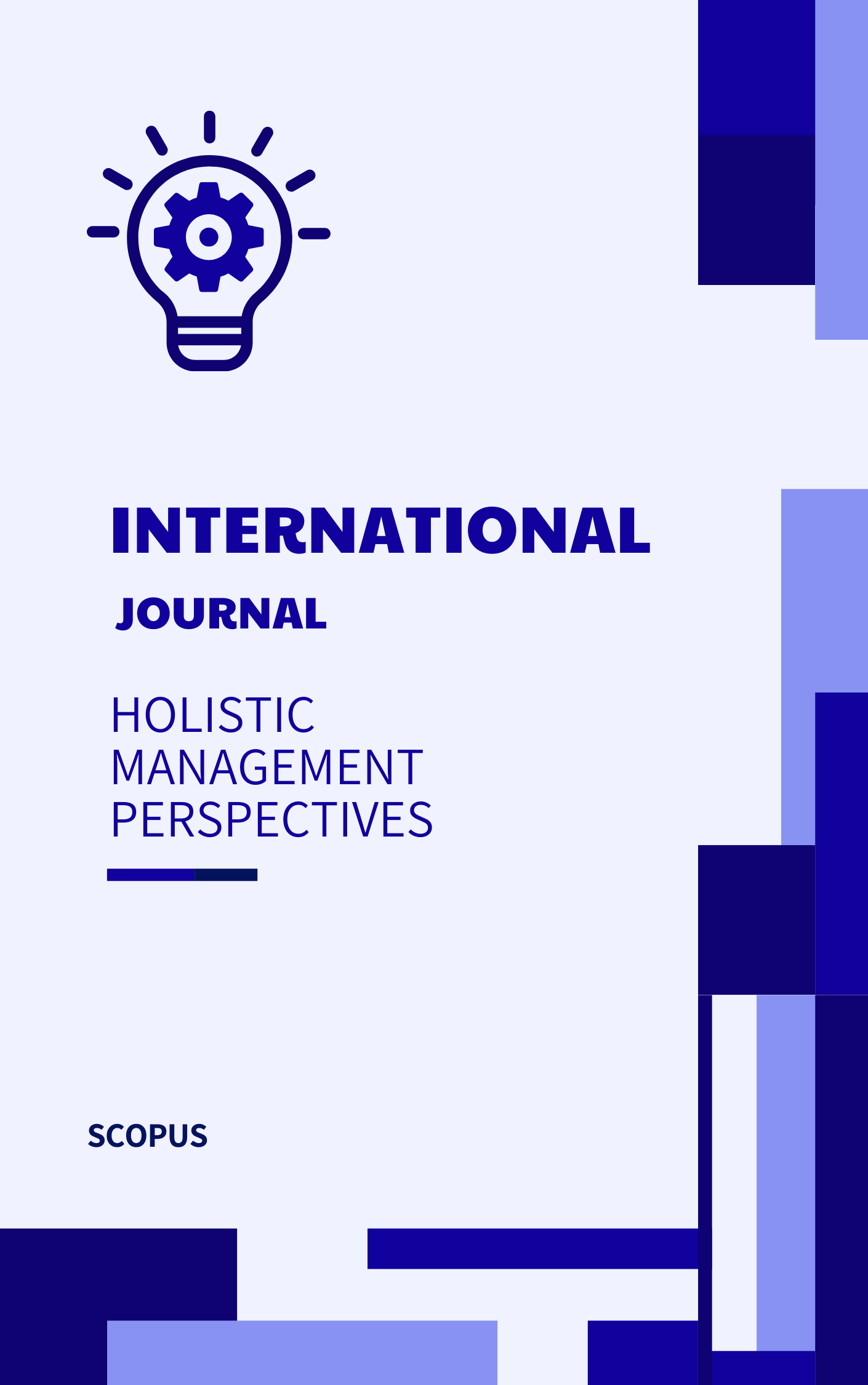
Editorial Team
Editor-in-Chief:
- Dr. Aisha Patel (United States) - Professor of Management, Greenfield University
Associate Editors:
- Prof. Juan Rodriguez (Mexico) - Department of Business Administration, National Autonomous University
- Dr. Mei Ling (China) - School of Management, Beijing University
- Prof. Ahmed Khan (Pakistan) - Institute of Business Studies, Lahore Business School
Managing Editor:
- Ms. Sofia Oliveira (Brazil) - Editorial Services Manager, IJHMP
Editorial Board:
- Dr. Amira Hassan (Egypt) - Department of Organizational Psychology, Cairo University
- Prof. Javier Garcia (Spain) - Management and Innovation, Barcelona Business School
- Dr. Priya Gupta (India) - Sustainability Management, Indian Institute of Management
- Prof. Yukio Tanaka (Japan) - Cross-Cultural Management, Tokyo University
- Dr. Nia Mbeki (South Africa) - Human Resource Development, University of Cape Town
- Siva Subrahmanyam Balantrapu (US) - AI, ML, Cyber Security, Independent Researcher, USA
- Sanjay Bauskar, Independent Researcher, Pharmavite LLC , USA
- Sapana Garud, fintech innovation, specializing in risk management, regulatory compliance, cloud-based solutions, and real-time financial systems. Expert, USA
- Vijayendra V Rao, Expert in digital commerce architecture, AI-driven supply chain transformation, and enterprise technology innovation, USA
Advisory Board:
- Prof. Angela O'Connor (Ireland) - Business Ethics, Dublin Institute of Technology
- Dr. André Dubois (France) - Environmental Management, Sorbonne University
- Prof. Karl Schmidt (Germany) - Innovation and Technology Management, Technical University of Munich
This diverse editorial team brings together expertise from different countries and cultures, ensuring a global perspective and enriching the journal with varied insights into holistic management practices. It reflects the commitment of IJHMP to inclusivity and a broad representation of perspectives in the field of management.
The review process for the International Journal of Holistic Management Perspectives (IJHMP) involves several key steps to ensure the quality, integrity, and relevance of the articles published. Below is a proposed review process:
1. Submission of Manuscripts
- Online Submission: Authors submit their manuscripts through the journal's online submission system, which includes details such as title, abstract, keywords, author information, and the full manuscript.
- Initial Screening: The journal's editorial office performs an initial screening to ensure that the submission meets the journal's formatting and scope requirements. Manuscripts that do not meet these criteria are returned to the authors with feedback for revisions.
2. Assignment to Editor
- Editor Assignment: Once a manuscript passes the initial screening, it is assigned to an Editor-in-Chief or Associate Editor with expertise in the manuscript's subject area.
- Conflict of Interest Check: The editor checks for potential conflicts of interest. If any exist, the manuscript is reassigned to another editor.
3. Peer Review Selection
- Reviewer Selection: The editor selects 2-3 independent reviewers who are experts in the manuscript's topic. Reviewers are selected based on their qualifications, previous review experience, and lack of conflicts of interest.
- Invitation to Review: Reviewers are invited via the journal's online system, and they are provided with the manuscript, review guidelines, and a timeline for completion (typically 3-4 weeks).
4. Peer Review Process
- Double-Blind Review: IJHMP follows a double-blind review process, meaning that both the reviewers and the authors remain anonymous to each other.
- Review Criteria: Reviewers evaluate the manuscript based on criteria such as originality, relevance, methodological rigor, clarity of presentation, contribution to the field, and alignment with the journal's scope.
- Reviewer Reports: Reviewers provide detailed reports, including comments for the authors and confidential comments for the editor. They may recommend one of the following actions: accept, minor revisions, major revisions, or reject.
5. Editorial Decision
- Editor’s Assessment: The editor reviews the reviewers' reports and makes a decision. If the reviewers' opinions differ significantly, the editor may seek additional reviews or make a decision based on their assessment.
- Decision Communication: The editor communicates the decision to the authors through the journal's submission system. If revisions are required, detailed feedback is provided to guide the authors in making the necessary changes.
6. Revision Process
- Author Revisions: Authors are given a specific timeframe (typically 2-4 weeks) to revise their manuscript based on the reviewers' feedback. Revised manuscripts are resubmitted through the online system.
- Second Review (if applicable): If major revisions were requested, the revised manuscript may be sent back to the original reviewers for a second round of review.
7. Final Decision
- Final Evaluation: After the revision (or second review), the editor makes the final decision on the manuscript's acceptance. The final decision can be accept, minor revisions, or reject.
- Proofreading and Formatting: Accepted manuscripts undergo a final round of proofreading and formatting for publication.
8. Publication
- Online Publication: Once the manuscript is finalized, it is published online in the next issue of IJHMP. The corresponding author is notified, and the article is made available on the journal's website.
- Archiving: The article is archived in the journal's database, and indexing services are notified for inclusion.
9. Post-Publication
- Author Feedback: Authors may provide feedback on the review process to help the journal improve.
- Review Quality Monitoring: The editorial board periodically reviews the quality of the peer review process and reviewer performance to maintain high standards.
This process ensures that the International Journal of Holistic Management Perspectives (IJHMP) maintains rigorous academic standards and publishes high-quality research that contributes to the field of holistic management.



